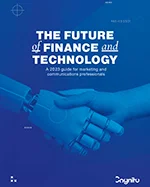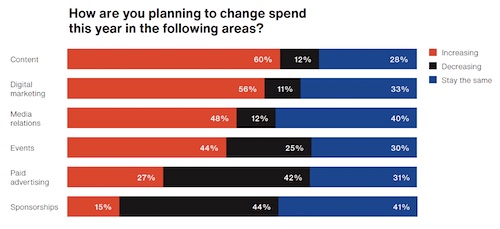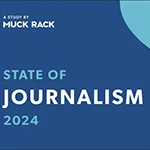 |
Senior leaders at financial services companies look at budget constraints as their biggest hurdle when it comes to meeting communications and marketing goals this year, according to a new study from Cognito Media.
Over a third of the more than 100 executives surveyed (35 percent) cited “budget” as the top challenge, with “execution” (18 percent), “negative external audiences and perception” (13 percent), “talent” (12 percent) and “ideas” (11 percent) listed as other limiting factors.
But while budget limitations are a strong overall concern, not all areas of marketing budgets are equal candidates for the chopping block. Sponsorships and paid advertising, in particular, were looked at with a considerably more wary eye than were areas such as content and digital marketing.
More than four in 10 respondents (44 percent) said they planned to decrease their spending on sponsorships, with almost as many (42 percent) aiming to cut paid advertising expenditures. Only 27 percent plan to spend more on paid ads, and just 15 percent said they would make a bigger outlay for sponsorships.
 |
When it comes to content, 60 percent said they will increase their spending, with only 12 percent anticipating cuts. Digital marketing was close behind, with 56 percent indicating that they would hike spending, and just 11 percent saying they would trim it.
But a good indication of the importance executives attribute to communications can be seen by the weight they give customer relationships and CRM. Almost four in ten (38 percent) say that those areas have become more important this year. Brand/reputation (30 percent) followed closely behind, far outpacing safety and liquidity of client assets (seven percent) and product pricing (four percent).
The respondents also weighed in on how they think AI will impact their success in delivering marketing messages. Over half (58 percent) said they think AI’s biggest effect will be a “greater volume of delivery,” with another 17 predicting “better quality of delivery.” Just five percent, however, think that AI will “replace current staff.”
Finally, respondents were asked to choose which of several alternative scenarios for the marketing landscape at financial services companies they thought was the most likely in the future. Top on the list was “increased and on-going marketing volatility and stress” (37 percent).
But the other choices give hints at some major shifts. Over a third (28 percent) think “influencers will become more important than reporters,” almost as many (27 percent) predict that “automation will reduce internal account” and seven percent actually foresee the eventual elimination of earned media from their marketing plans.


 Consumers who once demanded convenience now require consistent, multi-channel experiences that cater to them at every point. Brands must have a clear, audience-appropriate, and channel-specific voice across all platforms.
Consumers who once demanded convenience now require consistent, multi-channel experiences that cater to them at every point. Brands must have a clear, audience-appropriate, and channel-specific voice across all platforms. Employees at U.S. companies are experiencing high levels of burnout, but managers are lagging behind when it comes to their awareness of the problem
Employees at U.S. companies are experiencing high levels of burnout, but managers are lagging behind when it comes to their awareness of the problem Brand has a powerful effect on a company’s valuation, but the level of brand understanding in the investment community leaves a lot to be desired, according to a new study from Brodeur Partners, Interbrand and NewtonX.
Brand has a powerful effect on a company’s valuation, but the level of brand understanding in the investment community leaves a lot to be desired, according to a new study from Brodeur Partners, Interbrand and NewtonX. AI may still be viewed with a wary eye by most media pros, but its use is growing, according to a new study from Muck Rack.
AI may still be viewed with a wary eye by most media pros, but its use is growing, according to a new study from Muck Rack. A new study from Walker Sands says that some marketers have been putting the cart before the horse when it comes to the relationship between marketing channels and business outcomes.
A new study from Walker Sands says that some marketers have been putting the cart before the horse when it comes to the relationship between marketing channels and business outcomes.


 Have a comment? Send it to
Have a comment? Send it to 
No comments have been submitted for this story yet.